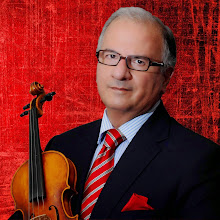 Oriana Fallaci
Oriana Fallaci, the Italian journalist best known for her startling interviews with some of the most famous politicians of the twentieth century, died yesterday at 77.
Fallaci, who had been ill with cancer for several years, died at a private clinic in her home city of Florence overnight. She had returned to Florence in the last days of her life after living for decades in New York. In recent years, she had gained a second notoriety for her vitriolic writings on Islam.
Small, beautiful, and extraordinarily tough, Fallaci was an Italian resistance fighter who became a war correspondent in the 1950s and 1960s, covering the Vietnam War and conflicts in the Middle East and Latin America. She was shot three times and beaten by Mexican police covering student riots in 1968.
But it was her one-on-one interviews with politicians, generals and religious leaders, conducted, as she said "with a thousand feelings of rage" that were translated and published all over the world, often with extended transcripts showing the full extent of her blunt, acerbic inquiries.
Mohammad Reza Pahlavi, the last king of Persia, Yasser Arafat, the Palestinian leader, Golda Meir, the Israeli Prime Minister, Ayatollah Ruhollah Khomeini, the leader of the Iranian revolution, all met Fallaci, but perhaps none regretted the experience more than the former US Secretary of State, Henry Kissinger.
Fallaci never married and leaves no children.
 Sir Malcolm Arnold, the British composer and musician, died in hospital yesterday after suffering from a chest infection.
Sir Malcolm Arnold, the British composer and musician, died in hospital yesterday after suffering from a chest infection.
